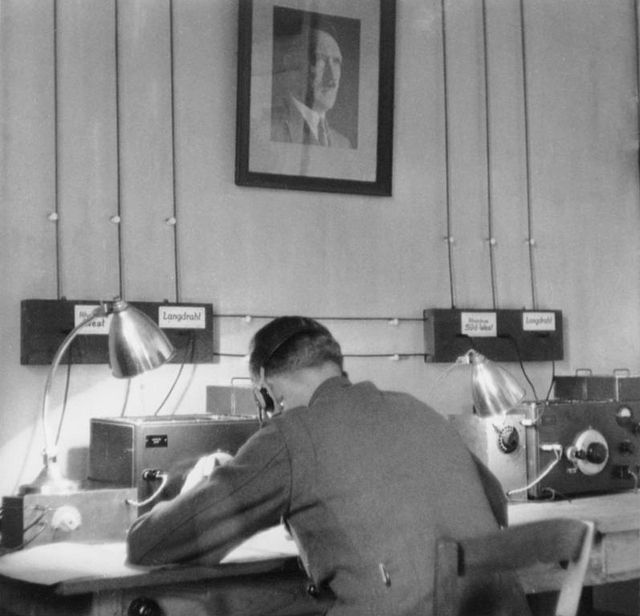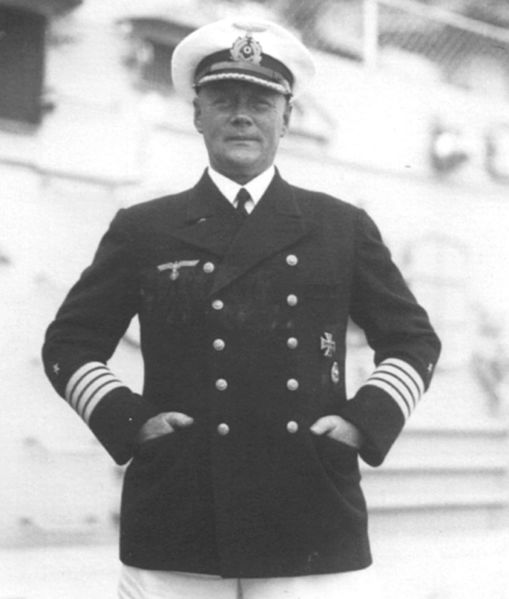Helmuth Groscurth was a German staff and Abwehr officer in the Wehrmacht and a member of the German resistance. As an intelligence officer he was an early proponent of the Brandenburgers, commanded unconventional warfare operations in the Sudetenland, and was an active conspirator against Hitler's agenda. He was later reassigned to the regular army following his criticism of war crimes committed by German forces in Poland. After commanding an infantry battalion in the invasion of France he assumed a variety of staff roles. He was involved in the events of the Bila Tserkva massacre where he attempted to avert the killing of Jewish children.
Groscurth as an Oberstleutnant, 1941
The Abwehr was the German military-intelligence service for the Reichswehr and the Wehrmacht from 1920 to 1945. Although the 1919 Treaty of Versailles prohibited the Weimar Republic from establishing an intelligence organization of their own, they formed an espionage group in 1920 within the Ministry of Defence, calling it the Abwehr. The initial purpose of the Abwehr was defense against foreign espionage: an organizational role that later evolved considerably. Under General Kurt von Schleicher the individual military services' intelligence units were combined and, in 1929, centralized under Schleicher's Ministeramt within the Ministry of Defence, forming the foundation for the more commonly understood manifestation of the Abwehr.
OKW secret radio service
Wilhelm Canaris
Image: F Bredow
Image: Kapitän zur See Konrad Patzig, first commanding officer of Admiral Graf Spee





